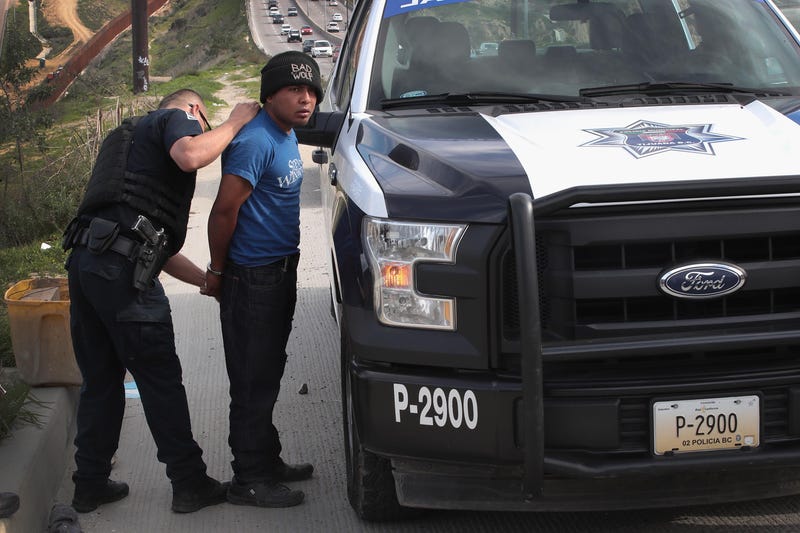
In the plazas and open air markets of San Salvador, young people debate the pros and cons of emigrating to America. One 21-year-old decides it's too risky.
"I have to stay here," he says. "Whether I like it or not."
Salvador Gutierrez, Deputy Chief of Mission for the Northern Triangle for the United Nations International Organization for Migration, says the odds of reaching the U.S. safely as part of a migrant caravan are fifty-fifty at best.
"Sadly, if you hire a smuggler, you have more probability to achieve the goal." The coyotes will get you across the border, he says.
And as Mexico intensifies its crackdown on the caravans, spurred by criticism from President Trump, more and more migrants are seeking other ways to get from Central America to the United States. That means a dangerous ride atop the long-haul train known as "La Bestia" (The Beast), or paying a coyote as much as $7000 to sneak someone into the U.S.
Josue, who does not want KCBS Radio to use his last name, knows just what his fellow Salvadorans are going through.
"I crossed with a coyote," he says.
More than 20 years ago, his family scraped together the money to get him out of El Salvador, to keep him from joining the notorious gang MS-13.
"They were worried that I was going to join them. I was very close, but I left, I think I left at the right time."
He was 17. His brothers and sisters are still in El Salvador today, facing even greater dangers now, including gang extortion.
"I know they are struggling," he says. "They have to pay these guys to let them be."
It took him six weeks to make it across Guatemala and Mexico, to Tijuana.
"I walked for three to four days with no food. Water? Luckily there was a spring or a river running. We walked for three days, hiding under the sun."
At the border, a human-smuggling coyote snuck him past U.S. immigration officials, in the trunk of a car.
"Six of us, lying flat. Can't breathe. They never checked the trunk and they never opened the car."
He stepped out into the sunshine of San Diego.
"I felt like, I don't know, I have no words. Happy, free, like, okay I'm into the USA!"
He made his way to Santa Rosa, in Sonoma County, where in the years since, he has settled, become a chef, and earned American citizenship.
"It was a dream for me, to be on this side, in the United States."
That same dream is what drives so many migrants north today, but, Josue says, only because of the nightmare back home, that's forcing another generation of Salvadorans to attempt the same journey.
"If we had jobs, if the gangsters were under control, I would not come here. I would have stayed home. There's nothing better than being home."

